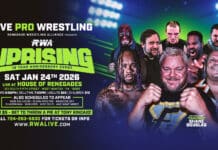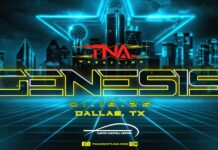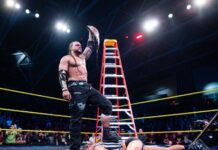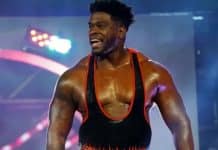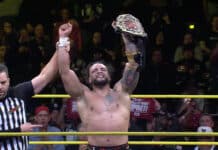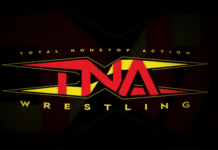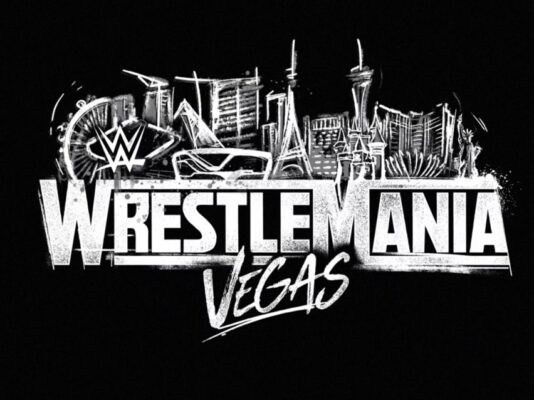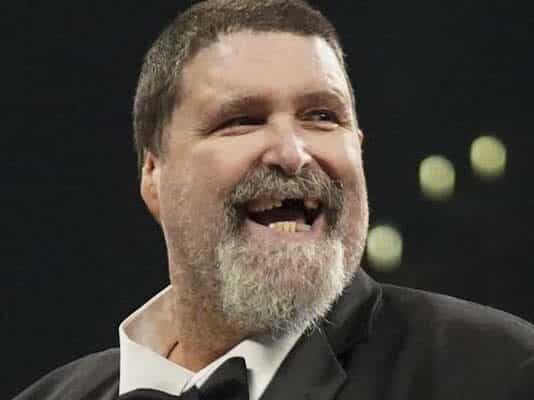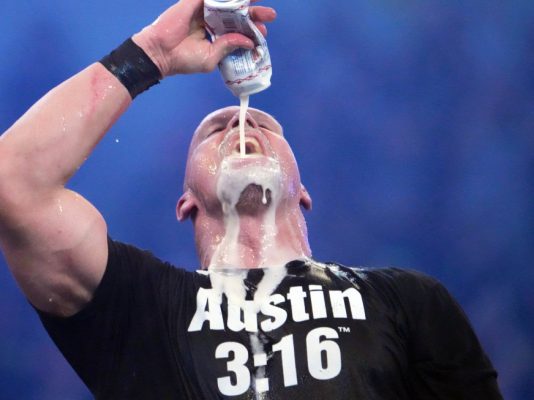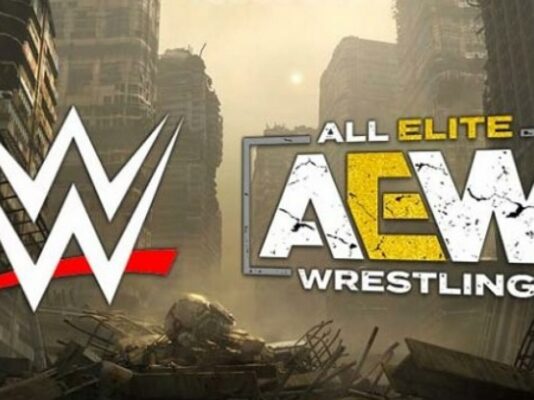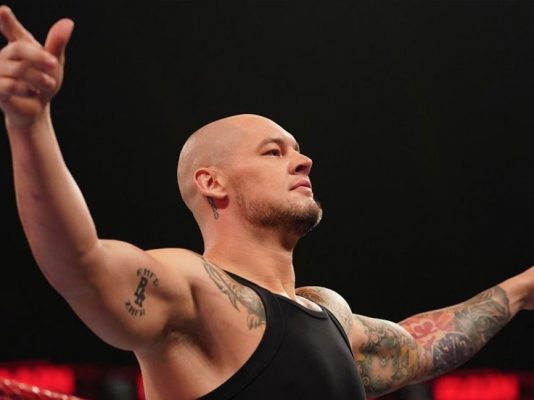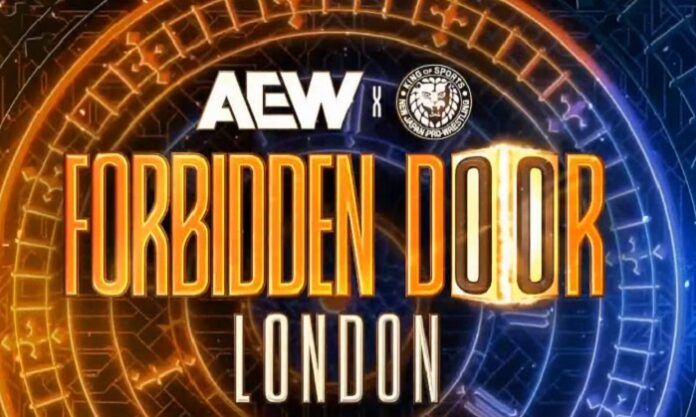
A few years ago, it was considered a dream match scenario that New Japan Pro Wrestling and All Elite Wrestling would form a working agreement to have talent from both companies on the same card. Of course, one of the reasons for this was there was a perceived level of tension between the two leagues after The Elite left the Japanese promotion to form All Elite Wrestling in 2019. As with almost anything else that has a specific degree of novelty to it, as time went on, the concept was somewhat diluted, which was partially the case for the event at the O2 Arena in London. One of the reasons for that is that in years prior, Forbidden Door, intentionally or not, became a test run of sorts for NJPW talent in front of an AEW audience, as Tony Khan signed away nearly every top star from New Japan, including Jay White, Okada, and Will Ospreay. That’s not to say that it was done as some type of “talent raid,” a term that became popular during the wrestling wars of the 90s, bur rather it was simply a case of Tony Khan being able to offer more money to talent than the Japanese group that had to endure the financial strain of the pandemic with either no live events or limited capacity that impacted revenue. The talent are in the sport to make a living, and Tony Khan gave them the best offer, that’s capitalism. If the former New Japan talent are better off under Tony’s direction is a completely different matter.
Still, the point being, with New Japan so thin on star power, the Forbidden Door pay-per-view seemed more like a regular pay-per-view with a few guest stars instead of the super card it was originally during the inaugural event a few years ago.
The show opened with the reunion of Adam Copeland and Christian against the returning Kill Switch and Kip Sabian. This started as basically a TV match, but build well and was a fun match by the conclusion of the 15-minute segment. Cope took a stiff boot to the face from Kill Switch, and somehow Kip got a hard way cut with a noticeable amount of blood during the second half of the contest. The only problem with this was that the slapstick nature of Tony’s booking style impacted the narrative and thus the crowd reaction to the segment. I think it goes without saying that the reunion of Copeland and his former tag partner was rushed so the audience still reacted to Christian as a heel. Furthermore, Kill Switch, who replaced an injured Nick Wayne after he broke his foot a few weeks ago, got cheered throughout the match. Considering that Christian berated both of his opponents during their time in the stable and wasn’t given enough time to evolve from such a solidified heel role, it’s not surprising that the crowd responded how it did throughout this match. A side note, this was probably the best Kip Sabain has looked in his career, but when you take into account that he was cast as a fool for the past several years, he will probably continued to be typecast in that role going forward. Copeland and Christian got the victory.
Kyle Fletcher beat Hiromu Takahashi to retain the TNT championship in another 15-minute bout. This segment was something that remained true to the original premise of this event, as it was two solid pros from both groups working a match that you wouldn’t see otherwise and it was a very entertaining contest. This was fast-paced, hard-hitting, and allowed both guys to look strong in the process. It was obvious that Takahashi wasn’t going to win the championship, but that was almost irrelevant because this was a work rate match.
The TBS title match was a prime example of how misguided Tony’s approach can be at certain times. Other than shoehorning more performers onto the card, why was this a four-way match? If there were several weeks of video packages to hype up the arrival of Bozilla then maybe there would be an argument for the youngster to be included in the match, but how did she get a title shot in her debut? It can’t be based on her reputation since she has only been wrestling for three years. Don’t get me wrong, given her height and presence, she looks to have the potential to become a star after she gets the chance to get enough experience, but how many people actually know who she is and why should they care that she was in the match? The same can be said for Persephone, does anyone know who she is? That’s not a knock on her talent or potential, but considering that AEW has several female wrestlers on the roster that are lost in the shuffle, was there any reason to bring in two unknown wrestlers? Has anyone found Britt Baker? The match had its moments so it wasn’t subpar or anything, but the whole presentation was disjointed, at least from a narrative perspective. Mercedes Mone retained the belt. Also, as much as Tony Khan might want to try to re-create the famous Ultimo Dragon photo with all the championships, Mercedes tends to be more self-hype than in-ring work more in AEW.
Zack Sabre Jr. vs. Nigel McGuinness was very entertaining, despite the fact that nobody in the building thought it was even remotely possible that Nigel would win the top prize in New Japan. Taking into account Nigel’s age and history of injuries, it was nice to see that they worked a relatively safe technical bout without the stiff strikes often seen in New Japan. Although, Sabre looked to get clipped in the mouth, as he had a small amount of blood on his lip. Obviously, this match-up made sense for London and was another example of a bout that fit the concept of the pay-per-view.
The tag team title match was fine, but definitely a bit odd at the same time. Usually, I take internet rumors with a grain of salt, but there was a story that made the rounds online that The Hurt Syndicate didn’t want to lose to specific teams, and given the finish of this match, there’s a chance that the reports might be accurate. On one hand, if Tony was a boss, he’d tell the talent that he’s paying a lot of money that they can either work the match with the scripted finish or there’s the door. Instead, Rusev got paid to stay home for two years, and Aleister Black rarely put anyone over before he returned to WWE. There’s a precedent that the talent can say no without any repercussions so at the very least, it’s possible that Bobby Lashley and Shelton Benjamin said no. On the other hand, with some of the silliness that happens in AEW, Lashley and Benjamin might have a point if they don’t want to be involved in the nonsense. Either way, if someone isn’t willing to do business, as misguided as some of the booking decisions might be, it’s an indication that they should probably just finish up with the company. Make no mistake about it, there’s a reason that The Hurt Syndicate has some of the better quality segments on the shows, but if they don’t fit within the structure of AEW, it’s better for everyone involved if they depart the organization.
Furthermore, Brody King and Bandido winning the titles seems like they were a thrown together team simply because there wasn’t anything else for them to do. They pinned FTR, and The Hurt Syndicate wasn’t even at ringside. With Buddy Matthews on the shelf with an injury, Brody probably would’ve been better off with a run on his own until they could reform the team. He’s popular with the AEW audience so it seems like he has a bigger upside them a random tag team because The Hurt Syndicate didn’t want to lose. The same can probably be said for Bandido, he’s a lot more marketable than the way the company has used him so far in his run there.
The Okada/Swerve match was a lot better than I expected it to be, mostly because usually Okada mails in most of his performance or works down to the level of his opponent. Swerve is a top-notch athlete, and Okada’s performance reflected that. This bout was an AEW style bout without going too over-the-top or using dangerous spots as a substitute for solid in-ring work. Okada got the win after he hit the clothesline, who would’ve thought that a finisher could be used to end the match?
Post-match, and possibly the bigger story than the result, is that Wardlow, who recently filmed a season of American Gladiators, made his return after almost a year and a half away from the company. In mid-2024, Wardlow suffered a knee injury and wasn’t brought back to television after that. All things considered, while Wardlow should be a major star somewhere, there have been way too many starts/stops for him in AEW. We’ve seen this story before, Wardlow will get some spotlight, get lost in the shuffle, and the best case scenario is he will be a secondary figure. The MJF storyline was suppossed to propell him and then the story was MJF going on strike before the PPV, Arn Anderson was his advisor briefly and it went no where, and he was involved in a few stables. The bottom line is, Wardlow is in the same spot today as he was five years ago. That speaks volumes about the lack of structure and effective booking in the company.
Toni Storm vs. Athena was fine for what it was, they are solid in-ring performers, but this was a segment where the narrative just didn’t connect with the viewing audience. Sure, in theory Athena should be a major threat to Storm’s title because she’s the record-setting champion from Ring Of Honor, but the problem is that virtually nobody watches ROH so her title reign has zero cache within the AEW landscape. Toni Storm retained the belt.
It’s ironic, but not surprising that the top two matches on the card were the biggest representation of the total lack of quality control in All Elite Wrestling. The premise of the main event was that the odds were tilted in the heel’s favor with multiple ways for MJF to win the championship. On the surface, that makes sense as it gives the baby face champion odds to attempt to overcome to retain the title. The problem is, for a match where a DQ could’ve been the reason for a title change, the rules were ignored so what was the point? Furthermore, with a 10-man cage match that was going to be a blood bath afterwards, what was the point of MJF bleeding buckets in the match before it? Did the title match really need blood? Did it really add anything? Clearly, this isn’t the final bout in the feud so why did they have to use the tables and the blood?
If someone enjoyed this AEW world title match then that’s certainly their right to enjoy this type of presentation. Maybe I’m missing something, but this segment and specifically the circumstances around the angle is a prime example of everything that is wrong with the product. The wrong match at the wrong time on the wrong spot on the card. Adam Page retained the championship.
The main event was more of the same, it was a 30-minute car crash that was too ridiculous and arguably too dangerous. The attempted comedy spot with the gummy bears was lame and it took away from the concept of the dangerous match. The spot where Darby Allin and Gabe Kidd fell off the cage through the tables looked dangerous because there almost landed like a lawn dart on the floor. The spot where Jon Moxley literally put a fork through Darby’s ear was completely ridiculous and stuff like that is why AEW will remain a niche product. It’s dumb from purely a safety perspective, but it’s even more foolish when you take into account that the business is supposed to be a work. If someone has to get legitimately mutilated to get a reaction, it’s niche independent wrestling, not a national product. The baby face team got the win when Tanahashi got the pin to conclude the pay-per-view.
What do you think? Share your thoughts, opinions, feedback, and anything else that was raised on Twitter @PWMania and Facebook.com/PWMania.
Until next week
-Jim LaMotta
Email [email protected] | You can follow me on Instagram, Facebook, & Threads @jimlamotta89

